Speakers
THE DAUBERT HEARING: FROM ALL THE CRITICAL PERSPECTIVES
MARCH 2, 2012
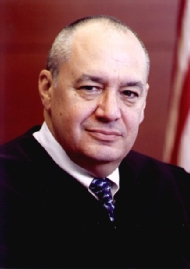
Hon. James M. Rosenbaum
District Court for the District of Minnesota
James M. Rosenbaum was appointed as Minnesota's 25th Federal Judge by President Ronald Reagan, taking his oath on July 19, 1985 and served until 2010.Judge Rosenbaum was born, October 12, 1944, at Fort Snelling, Minnesota. He graduated from the University of Minnesota Law School in 1969. After graduation, the Judge entered VISTA service in Chicago, Illinois.He returned to Minnesota in 1972, engaging in private law practice from 1969 to 1981, when he was appointed U.S. Attorney for the District of Minnesota, serving until his appointment to the federal bench. Judge Rosenbaum became Chief Judge of the District of Minnesota on July 1, 2001.Judge Rosenbaum served on the Eighth Circuit's representative on the Judicial Conference of the United States, and served on its Executive Committee from 1999 to 2001.
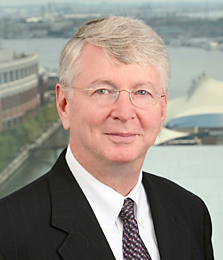
Robert G. Smith
Venable LLP
Robert Smith is a veteran defense attorney who specializes in environmental law at Venable LLP. He is renowned for his expertise in cross-examining expert witnesses in scientific matters. His litigation expertise includes cases involving environmental damage, air and water pollution.
He has a keen interest in the appropriate elements of proof of causation in toxic tort settings, and an understanding of the common misunderstanding and misapplication of causation requirements in much of toxic tort case law.
Mr. Smith has extensive experience with toxic tort litigation. Among many other duties during more than 25 years of practice, he was the Venable attorney primarily responsible for all expert witnesses and technical issues in two multi-plaintiff tort lawsuits filed by employees of a tire manufacturing facility. The case involved expert witnesses and epidemiological evaluations for hundreds of chemicals.
Mr. Smith received his LL.B. from Harvard Law School in 1968. He graduated from Johns Hopkins with a B.A. in 1965.
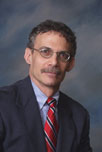
Bert Black
Mansfield, Tanick, and Cohen, PA
Mr. Black, co-author of one of the leading articles on Daubert, is a leading plaintiff's attorney whose work includes managing expert witnesses during the Vioxx and Baikal mass tort litigation. Bert is widely recognized for his work in cases with complex scientific issues. He has published numerous articles in these areas. Mr. Black represented amici in the U.S. Supreme Court in the seminal Daubert appeal, and was the Chair of the ABA Section of Science & Technology in 1996-1997.
Mr. Black has been in the active practice of law for thirty years, mostly as a litigator, since he received his J.D. from Yale Law School in 1982. Before that, Mr. Black attained his B.S. & M.S. in Civil Engineering, worked as a Civil Engineer for four years and still is a registered Professional Engineer in Maryland. He has been licensed to practice law in Maryland, Georgia, Texas, Minnesota and the District of Columbia, as well as before the USPTO as a Patent Attorney.
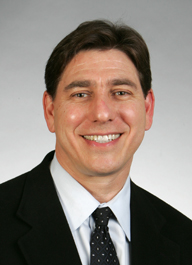
Professor David L. Faigman
University of California Hastings College of the Law
Professor Faigman is the John F. Digardi Distinguished Professor of Law at University of California, Hastings School of Law, and is a specialist in the use of scientific research in legal decision making. He is a co-author of the five-volume treatise, Modern Scientific Evidence: The Law and Science of Expert Testimony (2008) (with Michael Saks, Joseph Sanders, and Ed Cheng). The treatise has been cited widely by courts, including several times by the U.S. Supreme Court. Professor Faigman also lectures widely to judges and lawyers, and served on a panel for the National Academies of Science investigating the scientific validity of the polygraph.
Professor Faigman has published numerous books and articles concerning the use, or failure to use, scientific research in legal decision-making. He is the author of Laboratory of Justice: The Supreme Court's 200-Year Struggle to Integrate Science and the Law (Henry Holt/Times Books 2004) and Legal Alchemy: The Use and Misuse of Science in the Law (W.H. Freeman 1999).
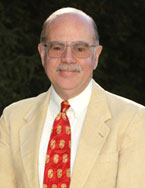
Professor Edward Imwinkelried
University of California, Davis School of Law
Professor Imwinkelried coauthored the treatise Scientific Evidence (with Paul Giannelli), which was cited twice by the Supreme Court in the seminal case Daubert v. Merrell Dow. Now in its fourth edition, it analyzes the most frequently encountered scientific evidence and the latest developments in scientific evidence, such as hypnotically-refreshed testimony, DNA technologies such as RFLP and PCR, computerized accident reconstruction, securing expert assistance, questioned document examination, and bite mark comparison.
Professor Imwinkelried is the Edward L. Barrett, Jr. Professor of Law at the University of California, Davis.
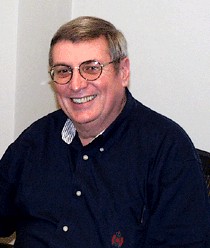
Dr. William A. Toscano, Jr.
University of Minnesota
William A. Toscano, Jr. is Professor and Head of the Division of Environmental Health Sciences and Head of Global Programs at the University of Minnesota School of Public Health. He was elected Fellow of The American Association for the Advancement of Science in 2006. He serves on numerous editorial boards, including the Faculty editorial board of the Minnesota Journal of Law, Science & Technology.
Dr. Toscano received a PhD in Biochemistry at the University of Illinois, Urbana-Champaign in 1978. He was a post-doctoral fellow in pharmacology at the University of Washington Medical Center, Seattle, WA from 1978-1980. In 1980 he joined the faculty at the Harvard University School of Public Health, where he was an assistant and associate professor of toxicology. In 1989 he joined the faculty of the Division of Environmental and Occupational Health at the School of Public Health at the University of Minnesota. He was named Professor and Chair of the Department of Environmental Health Sciences at the Tulane University School of Public Health and Tropical Medicine, New Orleans Louisiana in 1993. He returned to the University of Minnesota School of Public Health in 1999.
Dr. Toscano’s conducts research investigating the mechanisms by which human health is modulated by environmental agents and how this information can be applied to population health to understand risk and intervention. He has served as an expert witness in many trials.
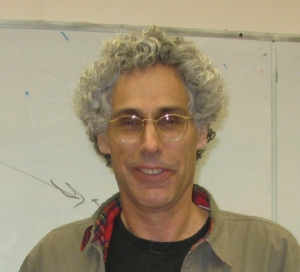
Dr. Sander Greenland
UCLA
Dr. Greenland is Professor of Epidemiology, UCLA School of Public Health, and Professor of Statistics, UCLA College of Letters and Science. Dr. Greenland is considered a leading authority on quantitative methods and statistical theory in epidemiology.
Dr. Greenland received his Ph.D. in Epidemiology from UCLA in 1978. He has published extensively in scientific journals and is the co-author of the book Modern Epidemiology. The book is cited in the chapter on epidemiology in the new, 2011 edition of the Federal Judicial Center's Reference Manual on Scientific Evidence, the 'Bible' on expert testimony for federal judges and practitioners. He teaches a number of courses on Epidemiology and Statistics, and frequently gives lectures around the world. He is a fellow of both the American Statistical Association and the Royal Statistical Society. Because of his expertise, Dr. Greenland is also called upon often to testify as an expert witness.

